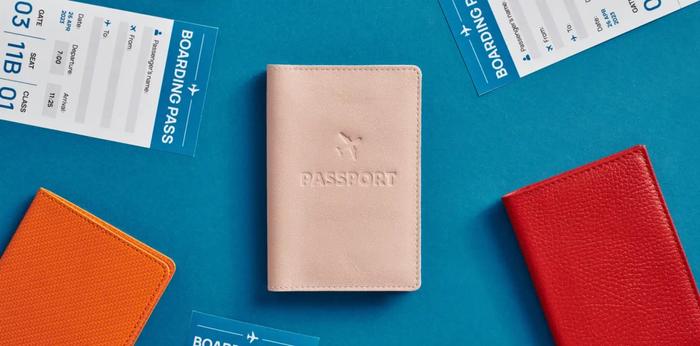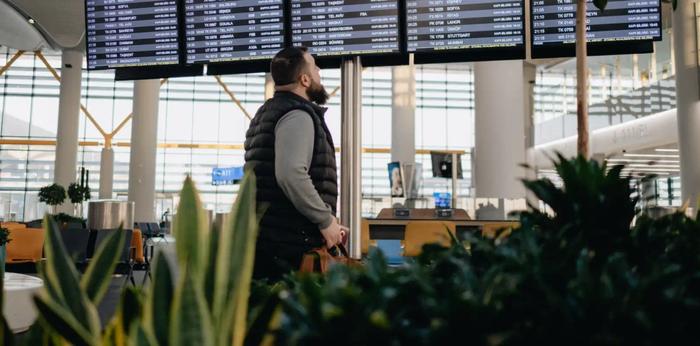Not too long ago, most people booked holidays and trips through a travel agency. However, the emergence of online booking platforms and the ease of DIY travel arrangements have significantly shifted behavior, leading to declining customer loyalty in travel.
This trend isn’t just a minor hiccup; it’s reshaping the entire landscape of the travel industry.
Customers increasingly view travel services as a commodity, rather than a personalized experience. The shift is part of a larger loss of connection and understanding that has long been the cornerstone of the travel agency-client relationship.
However, there’s a silver lining. With the right tools and strategies, travel agencies can reinvent their approach to customer loyalty and stand out from the competition.
In this article, we’ll explore the current state of customer loyalty in the travel industry, delve into the biggest challenges and provide actionable solutions to foster lasting relationships with your clients.
The state of customer loyalty in the travel industry
While the pandemic had a huge impact on the travel and hospitality industry, the market seems to have recovered. From a low of $280 billion in 2020, the worldwide travel agency market size bounced back to $432 billion in 2022, with projections showing continued growth in 2023.

However, while things are looking healthy for the travel industry going forward, the way people book their trips is changing. Online travel agency (OTA) platforms like Booking.com and Expedia offer a seemingly endless variety of options, allowing customers to compare prices and amenities at the click of a button.
In one recent survey, 41% of people said they used an OTA platform, compared to 29% who preferred to use travel agents or tour operators.
This trend is even more evident in both regular travelers, where nearly half use OTAs while the number using traditional travel agencies dropped to around 20%.
Similarly, people under 35 were most likely to use an OTA as their preferred booking tool. In other words, the way the younger generation is booking trips has changed, indicating this trend is only going to grow.
OTAs have set new standards in customer expectations — standards that traditional travel agencies now must meet if they’re going to stay relevant.
This isn’t just about competing on price or options. Today’s travelers seek personalized experiences that go beyond a simple transaction.
The good news is that traditional travel agencies, with their expertise and personal touch, can still offer a better service in this area.
When agencies understand how digital trends and other factors affect customer loyalty, they can respond with targeted strategies designed to rebuild that loyalty and forge stronger, more enduring relationships with their clients.
The challenge of maintaining customer loyalty
It’s easy to point at the rise of OTA websites and apps as the main reason for declining customer loyalty.
However, if you want to compete with the big names in online travel, you must go deeper and understand exactly why these services have become so popular.
These factors have contributed to the increasing popularity of OTAs, in turn creating new challenges for traditional travel agencies.
Instant gratification
Who wants to wait when you can have something right now? The internet has significantly changed our expectations, from online retailers offering same-day delivery to immediate access to entertainment from TV and music streaming services.
In the travel industry, the allure of instant bookings and the ease of price comparisons have also reshaped our expectations.
Online platforms like Airbnb and Kayak let you search for and book your next holiday, with a wide array of options for you to choose the perfect hotel, room and amenities.
Today, people can book a trip in the same amount of time it takes to order a takeaway.
The traditional, more deliberative approach to travel planning is being challenged, requiring a balance between thoughtful service and the speed customers have come to expect.
Travel agencies need to recognize this shift and adapt by streamlining their booking processes and offering more immediate and responsive services.
Perceived value
With many people having to deal with a cost of living crisis, today’s travelers are more interested in getting a bargain than ever before. While people are still traveling, cost is now a prime concern.
Many customers believe booking directly or through online platforms is more cost-effective than going through a travel agency.
If customers don’t think they’re getting the best value for their money, no amount of loyalty will be enough to keep them coming back.

To counter this perception, agencies must communicate their unique value, whether that’s exclusive deals, expert advice or personalized packages.
This requires effective communication and may mean restructuring your services to highlight their unique value propositions. Highlight how these services can lead to a more enriching travel experience, often outweighing any marginal cost savings of direct bookings.
Convenience
One of the primary benefits of OTAs is the convenience. Online platforms are available 24/7, providing information and booking capabilities at any time.
Our time is precious, so customers are more likely to stick with services that are readily available and easy to use.
Traditional agencies, often bound by office hours, need to find ways to offer similar levels of accessibility.
The goal is to provide customers with the convenience they have come to expect from digital services, without losing the personal touch that sets agencies apart.
Enhanced online presence, after-hours support and user-friendly interfaces for bookings and inquiries are all steps towards meeting the customer’s expectations.
Lack of personalization
The digital world has made things a lot easier for customers, the flip side is that they may feel like just another number.
While it’s difficult to compete with OTAs in terms of instant gratification, perceived value and convenience, personalization is one area where agencies can truly excel.
However, if an agency is offering the same cookie-cutter service as their online competitors, it’s difficult to see why anyone would pick them over the big-name platforms.
Customers may feel undervalued or overlooked when travel agencies only provide generic services.
Personalization is key to making customers feel special and understood, a critical factor in fostering loyalty.
Traditional travel agencies, with their expertise and personal touch, have an opportunity to create bespoke experiences for their clients.
This requires understanding individual client preferences and tailoring services accordingly — a task where customer relationship management (CRM) software is particularly useful.
##Boosting customer loyalty with CRM software When trying to enhance customer loyalty, CRM software is a powerful tool for travel agencies. By leveraging the capabilities of CRM, agencies can effectively address the above challenges and foster stronger relationships with their clients.
CRM systems excel in collecting and analyzing customer information. This data can include travel preferences, past bookings, feedback and even social media behavior.
By understanding these patterns, you can tailor your offers to match individual customer preferences, delivering a highly personalized experience that online platforms can’t match.
For example, if a client regularly books beach vacations, you could offer deals on coastal destinations or related activities (like scuba diving courses or surfing trips).
CRM tools can automate certain parts of your communication, like sending personalized trip reminders, travel tips based on the destination or post-trip feedback forms.
Similarly, CRM software can also remind you to stay in contact with clients at strategic times, such as immediately after booking, as they’re planning the trip, when they arrive at their destination and when they get back home.
These follow-ups can be personalized based on the specific CRM data, making the customer feel cared for and appreciated.
Keeping track of each customer’s communication history helps agencies provide more thoughtful and cohesive services.
For instance, if a customer had a previous issue or a specific request, this information can be easily accessed and addressed in future interactions. This level of communication shows customers that they are remembered and valued, enhancing their loyalty.
By integrating CRM software into their operations, travel agencies can not only address the specific challenges of customer retention but also elevate their overall service quality.
The key lies in leveraging technology to enhance the human aspect of their services and offer personalized travel experiences that build long-lasting customer relationships.
Discover more about how a CRM for travel agencies can improve client retention and customer loyalty.
4 additional strategies to increase customer loyalty
Beyond the use of CRM software, there are other ways travel agencies can boost customer loyalty.

These approaches focus on adding value and depth to the customer experience, distinguishing agencies from the big online platforms.
1. Offer useful resources
For travel agents, it’s no longer enough to just offer travel services. You need to provide valuable resources and insights, helping people get the most out of their trips while also positioning yourself as a trusted expert and advisor.
Organize educational events, such as travel workshops or webinars that provide insights into travel planning, destination highlights and cultural etiquette.
Make use of your expertise to create comprehensive guides or blog posts about popular destinations, with unique travel tips, local customs and hidden gems to help clients have a more enriching experience.
This not only positions your agency as a knowledgeable authority but also engages clients beyond the booking process.
2. Create a sense of exclusivity
When you give travelers something they can’t get anywhere else, you dramatically increase your perceived value and boost loyalty.
Partner with hotels, airlines, and local attractions to provide exclusive deals or perks for your clients. This could include room upgrades, late checkouts or special tour rates.
Consider teaming up with local businesses to offer unique experiences, like cooking classes with local chefs or private tours with historians.
These collaborations can provide clients with memorable, one-of-a-kind experiences.
Along with these partnerships, be sure to reward loyalty. Develop a loyalty program that rewards repeat bookings with perks like discounts, special services or access to exclusive events.
This encourages repeat business and fosters a sense of belonging among clients.
3. Add the human touch
Automation is a key part of running an efficient and productive travel agency, but it should never completely replace the human element.
After all, the ability to create a truly personalized service is what differentiates traditional agencies from the big OTAs.
If possible, assign a dedicated travel advisor to each client. This advisor would be responsible for understanding the client’s preferences, making tailored recommendations and being their point of contact throughout their travel journey.
Use your CRM to keep track of important events in your client’s lives, like anniversaries or birthdays, with small gestures or acknowledgments during their trips.
This personal touch can create emotional connections that aren’t quickly forgotten.
4. Build a community
By creating a community around your travel agency, you can build deep connections between yourself and your clients (as well as between the clients themselves).
Start by creating a space where clients can upload their travel stories, tips and reviews.
When clients share their experiences in their own words they become your biggest advocates, offering an authenticity that’s difficult to capture in most marketing.
You can take this further by hosting social events or meetups that unite travelers. These events can be themed around travel stories, planning for specific destinations or just casual networking. It’s a chance for clients to relive their travel adventures and dream up new ones, all while reinforcing their connection to your agency.
Conclusion
Today’s customers have more choice than ever before, with new travel services and apps being launched all the time. This increased competition and the trend toward using OTAs means that fostering customer loyalty is more crucial than ever. However, within these challenges lie opportunities for agencies to redefine and strengthen their relationships with clients.
By adapting to change and leveraging technology, travel agencies can significantly enhance customer engagement and loyalty.
CRM tools enable agencies to understand and cater to individual client needs, while strategies like creating useful resources and exclusive services add value that goes beyond mere transactions.
By focusing on these personalized experiences and building a community around your brand, you can create a loyal customer base that values your services as much as their travel destinations.
Discover how Capsule can help you attract more clients and boost customer loyalty for your travel agency. Start your 14-day free trial today.




